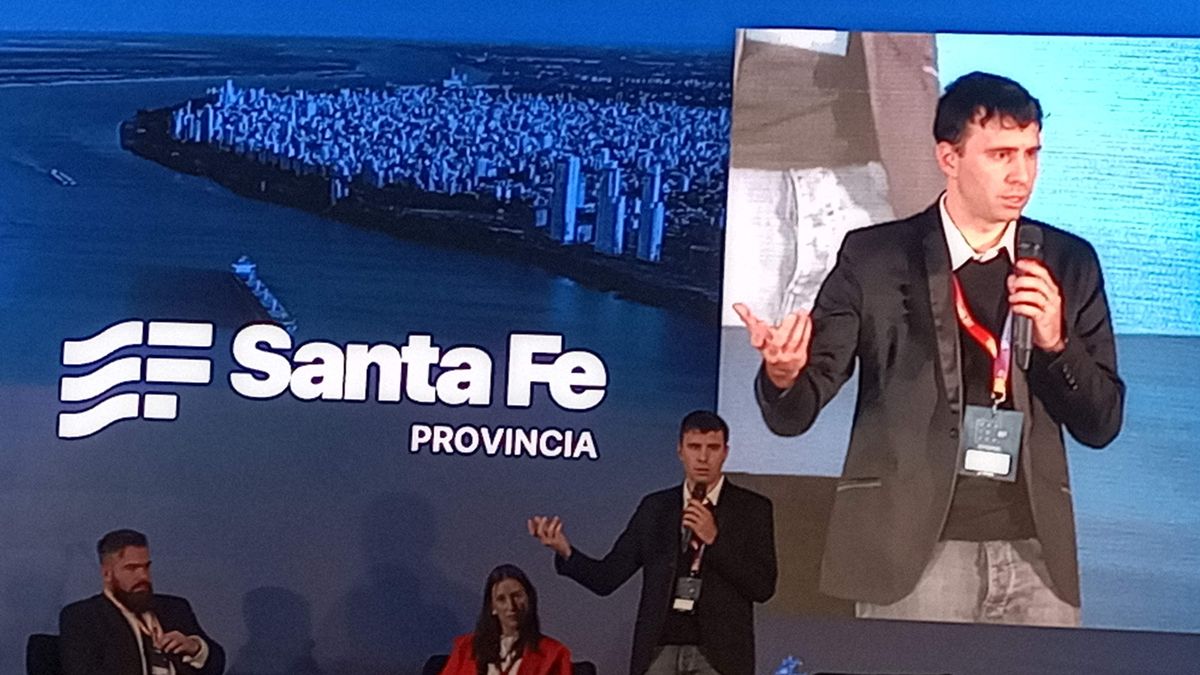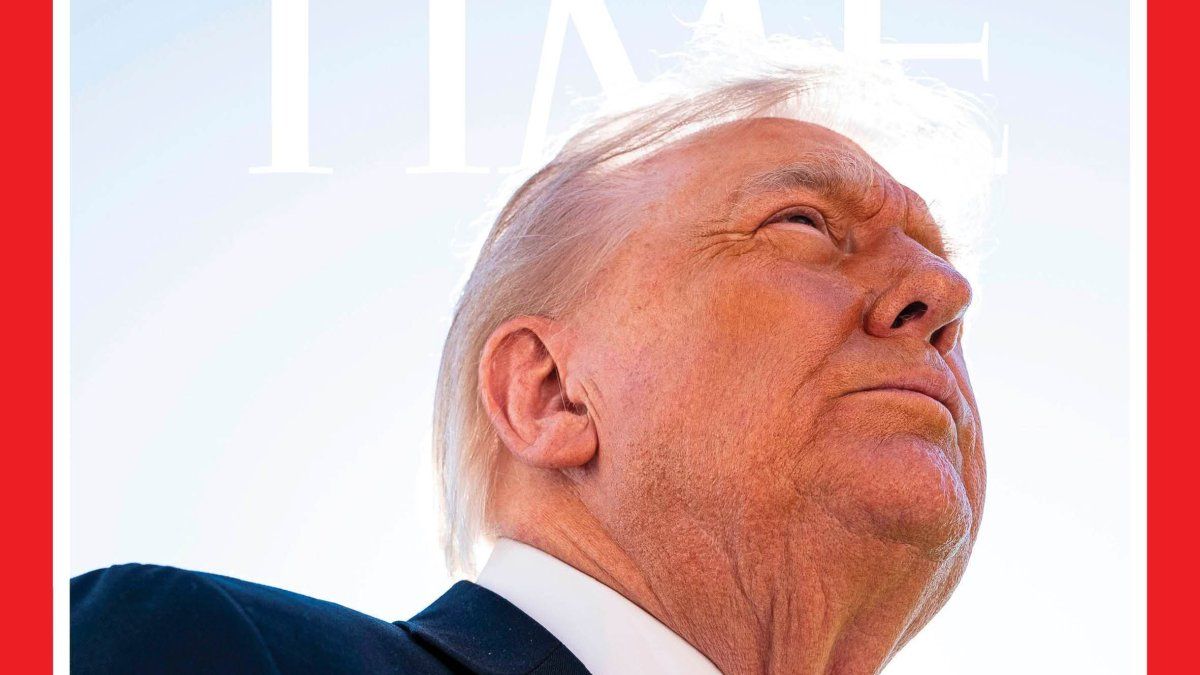The startups were the main stars of the investment forum that took place in Rosario, within the framework of the Santa Fe Business Forum organized by the provincial government headed by Maximiliano Pullaro.
Scope gathered testimonies from two case witnesses who participated in the meeting. Lucía Curti, from the biotech Alchemyand Juan Manuel Baruffaldi, from the agtech DeepAgro.
Their experiences, beyond some logical differences, They follow similar pathsfrom the origin of the projects to the different seed rounds to capture the first investments that allow them to sustain the projects.
Despite exhibiting a successful path achieved without state intervention or contribution, entrepreneurs have in common the demands directed to public powers so that bureaucracy don’t put spokes in the wheels of their projects.
In one case, the claims point against Delays in import deadlines of basic inputs (in this case reagents) for local production. And in the other, the request aims to obtain clear and stable rules that allow planning for at least one calendar year.
Alkemio, the Argentine biotech company that seeks to break a Chinese monopoly
Lucía Curti is co-founder of the biotech company Alkemio. “Our main objective is to refining and purifying critical metals For the energy transition, we are particularly interested in rare earth elements that are used in everyday life. And we do this through a molecular recognition technology. These metals are mainly used in electronics, wind turbines, microchips, motors.”
But these critical metals are not as rare as their names make them seem. They are distributed all over the world. And the big problem they face is not their rarity but that 90 percent of these materials are processed in Chinawhich has the monopoly of a nascent market valued at 36 trillion dollars.
“On this side of the world, there are only two or three companies that are in pilot scale. That is where our solution comes in. We have a molecular recognition technology that allows us to directly extract the metal of interest from a complex mixture and transform it into oxides that are available and with a high level of purity to be incorporated into the value chain, since they are used in different electronic components,” explains Curti.
With Alkemio they aim to be one of the “top players” that manages to decentralize the refining model of critical metals on this side of the world. With this objective, is opening a new round of investment and is looking to raise $4 millionto advance their developments.
“We are four founders and we have four employees. We don’t have any clients. We collaborate with mining companies in the region. The next round of business that we are looking for will allow us to start growing. Moving to a kilogram scale when we work in grams today. We have a work plan to show what the next steps will be, where we want to set up the plant, grow our teams and move to the United States,” he explained.
When it comes to setting out what demands they have to make of the public authorities, they do not mention subsidies or any direct assistance. “Throughout all these years and based on our experience in this startup and in previous ones, I think more push is needed, especially in logistics. Meeting Many obstacles to importsespecially those of us who depend on reagents need to have competitive times since We can’t wait six months. Differential channels should be managed there. Having support from that side can be very helpful, because otherwise I’m not competitive. I can have an excellent plan but sIf I don’t deliver on time, I’ll be left in a bad position. with my client.”
DeepAgro, the agtech that wants to be the Google Maps of the countryside
Juan Manuel Baruffaldi was born in the Santa Fe town of Casilda, as part of a family of agricultural producers. He got used to seeing his father deal with different problems that this activity posed and he set out to Find tools to help you solve them.
He went to study computer science at the University of Rosario, where he specialized in artificial intelligence. And one day he decided to connect those two worlds and apply what he learned at the academy to the problems of his producer father.
This is how it came about in 2017 DeepAgrowith the intention of Apply AI to solve the environmental impact of the activity and change the day-to-day life of agriculture.
Five partners participated in the founding of DeepAgro. In 2019, they made the first round of investment, in which Adecoagro and Venture participated, among several funds, organizations and institutions that were interested in the technology that offered solutions for the field.
Thus, in 2020 the first investors joined, who were producers who wanted to apply the technological solution to the problems in their own fields.
Currently, DeepAgro has 46 people working in the company. And they operate in Argentina and Uruguay. They entered Brazil this year. And they plan to enter USA in 2025.
They created 5 beta products and started producing technology to export their services. They had their first 15 clients in 2022, which was an important kick-start for the startup’s growth. “Those clients took it upon themselves to tell the world what our products were and gave us a big boost,” says Baruffaldi.
In 2023, they made the second round of investment and with those funds they financed their landing in Brazil. Now they began to manage a Series A round to be able to enter the United States in 2025.
“We went through the pandemic, the war and we continue to grow. And throughout our history we have reduced more than 300 tons of plastics, 42 million liters of drinking water, More than $24 billion in cost reductions for producers,” explained the co-founder of DeepAgro.
Like his colleague from Alkemio, his claims to the public sector do not involve tax benefits. “We need clear rules for a significant period of time, which will allow us to be competitive and plan ahead. We have one-year planning cycles.”he said.
“We want to change the way we apply chemicals and eliminate the use of agrochemicals in agriculture and boost crop yield, and we do this through artificial intelligence. In the short term, we are going to position ourselves as relevant players in the application of artificial intelligence in agriculture and we are promoting a disruptive project. The last change of this type that the sector had was direct sowing, which was born in Argentina,” he said.
The basis of startup technology They are high resolution cameras who walk through the fields with the intention of identifying and eliminating weeds. But there is much more to it than that: “We are creating the most important agricultural database in the world. As Google filmed all the streets in the world, we are filming all the fieldscollecting data through artificial intelligence, and providing solutions that improve the productivity of agricultural producers,” he concluded.
Source: Ambito




